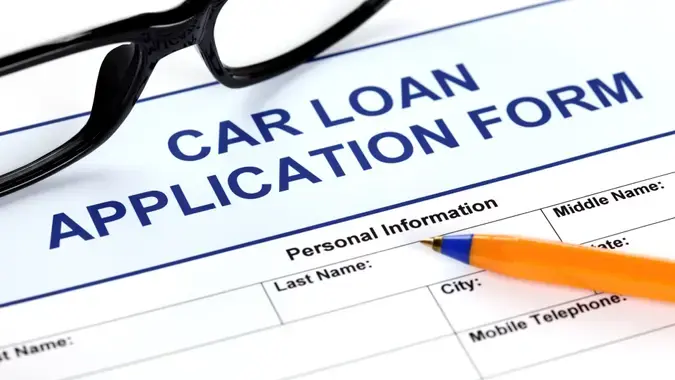Buying a car is a significant financial decision, and getting the right loan can make a big difference in your total costs. Before you apply for a car loan, you should take proactive steps to ensure a smooth and favorable experience.
Here are ten things to think about before applying for a car loan, according to lending experts.
Understand loan qualifications.
Adam Crossan, head of auto at LendingClub, emphasized the importance of understanding what is required to qualify for a car loan.
“It’s important to start with knowing what you need to qualify for a car loan,” he added. “Qualifications vary depending on the lender and the vehicle you are purchasing. In general, good credit, a low debt-to-income ratio, and a low loan-to-value ratio can improve your chances of approval.
Evaluate your budget.
“You’ll want to look at your budget to see how much you have available to spend for auto expenses each month,” said Gary Guthridge, AVP of consumer lending at Navy Federal Credit Union. “The biggest auto expense will likely be your monthly payment, but you should also consider insurance costs along with the cost of routine maintenance and repairs.”
Increase your credit score.
Heim Levi, managing director of Auto Almanac, emphasizes the significance of credit scores: “Taking the time to check and improve your credit score can significantly impact the loan terms and interest rates you qualify for, potentially saving you money in the long run.”
Explore your options.
Guthridge suggests using online resources such as auto loan calculators to determine how loan length, interest rate, and down payment affect your monthly payment.
“With the internet at your disposal,” he went on to say, “you have access to resources where you can play around with the numbers to see how all of these aspects affect your monthly payment.”
Research Lenders.
“The rate and loan terms that you get could vary depending on where you apply for your loan,” Guthridge said in a statement. “For instance, credit unions often have lower rates than other financial institutions, so you may want to see if you are eligible for membership at a credit union near you.”
Consider Pre-approval.
Guthridge recommended getting a pre-approved loan, which can give you peace of mind and improve your negotiating position.
He went on to say, “Having a pre-approval in your hand lets you show the dealership that you are a serious buyer who has done their research and has already been able to secure proof of financing.”
Prepare documentation.
Levi advised being prepared with the necessary documentation, such as proof of income, employment verification, and identification.
“This can expedite the application process and increase your chances of approval,” he went on to say.
Consider new versus used.
Crossan advised buyers to be aware of the potential financing differences between new and used cars.
“Buying a used car vs. a new car will affect financing,” he added. “Some lenders will only finance a new vehicle and/or charge higher interest rates on new vs. used cars.”
Search for payment options.
Crossan advised considering prepayment options when choosing a lender.
“Some lenders might also charge a fee if you want to pay off your auto loan early,” she said. “If the loan doesn’t have a prepayment fee or penalty, you may save money refinancing the loan from a lender like LendingClub or paying it off early.”
Save for a larger down payment.
As a final piece of advice, Crossan suggested, “Looking for a less expensive vehicle and saving for a larger down payment may help in the long run.”
By following these expert tips, you can confidently navigate the car loan application process and secure a financing option that meets your needs and financial objectives.
Levi went on to say, “Being prepared before applying for a car loan can help buyers secure a favorable financing option, reducing the overall cost of ownership and ensuring a stress-free car buying experience.”

